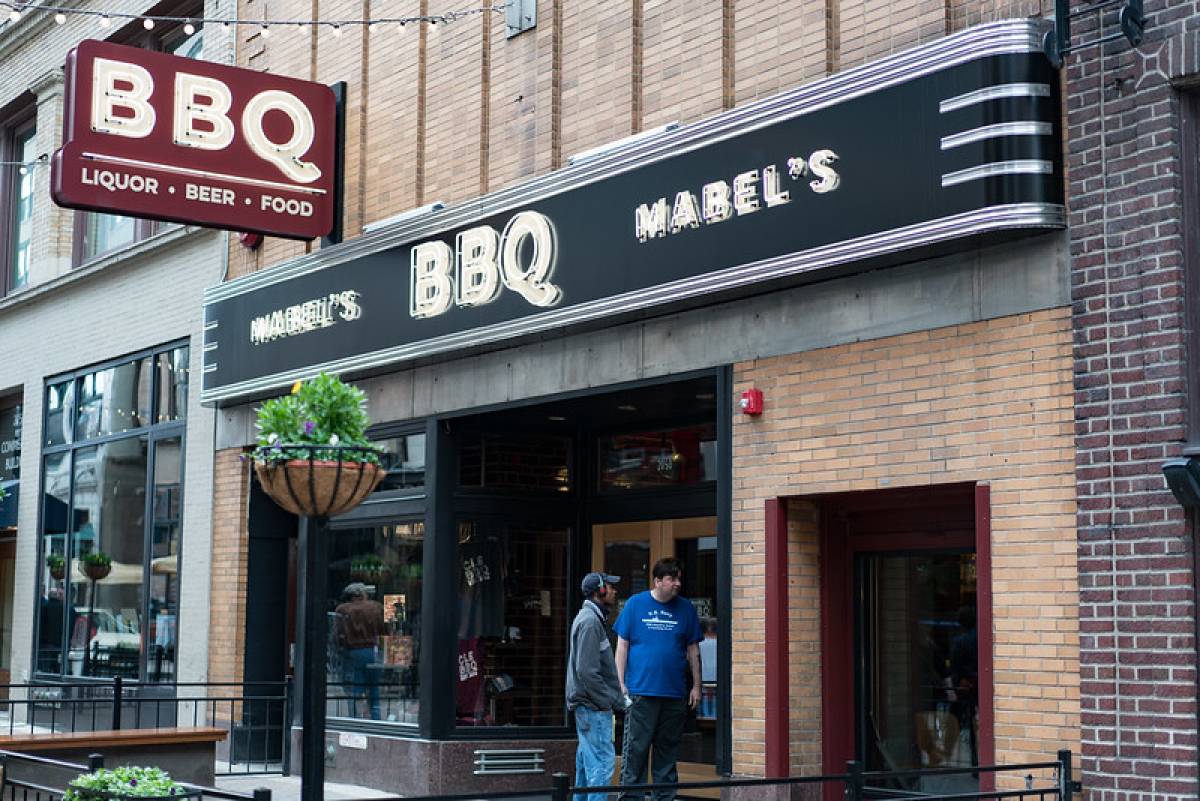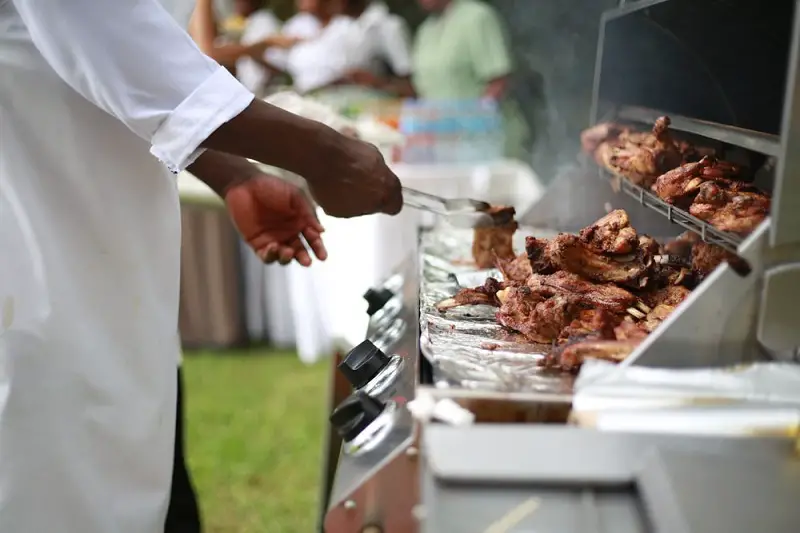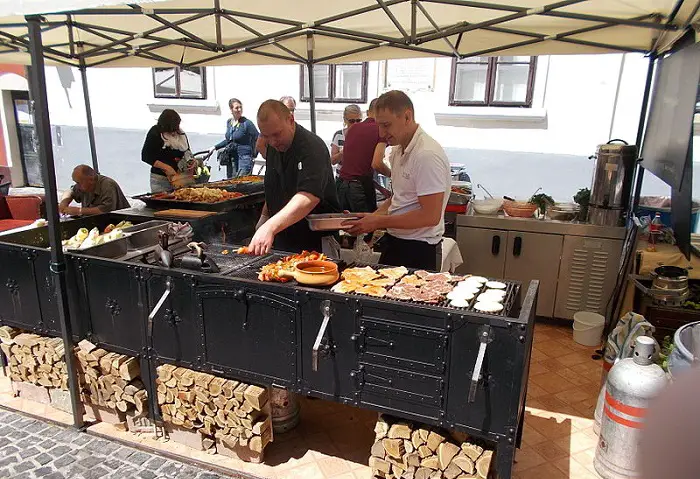How Restaurants Can Adjust and Market Their Business After the Pandemic

Mabel's BBQ restaurant: Photo: Edsel Little / Flickr
The effects of COVID-19 on the global economy initiated economic backdrops that businesses must soon strive to cope with these challenges.
A publication on the World Economic Forum highlights in-depth economic struggles as businesses close down due to the global health pandemic, suffering from financial setbacks and inducing increased rates of unemployment.
The effects of the pandemic are widespread across various key industries, affecting both goods and service sectors. The restaurant business sector is also caught up in this mess and has been badly affected. For most of these types of business, it results in closure.
It has been difficult for restaurants in New York, the hardest-hit region in the United States. Going forward, Rochester Barbecue Restaurants in New York and food businesses like it in other places should carefully examine their strategies to thrive as the crisis slowly comes to an end.
In addition to exercising to minimize the effects of COVID-19, customers of barbecue restaurants should desire a healthy diet, which restaurants must pay close attention to.

Adjusting to the "New Normal" after the pandemic
Here are some of the ways in which Rochester barbecue restaurants (as well as other restaurant businesses) can adjust to the "new normal" and market their business after the pandemic:
In-house Keeping
To get started with marketing their business once the crisis is over, restaurant businesses should first start with self-assessment. This will entail evaluating the intensity to which the crisis has affected their business performance.
The best way is to conduct a SWOT analysis – identify their strengths, weaknesses, opportunities, and threats.
- Strengths: It’s necessary for restaurants to find out the strengths they still posses after the pandemic. Strength can be in terms of the availability of human and economic resources, which set their feet on the marketing track after the crisis.
- Weakness: It’s noticeable that the crisis has affected restaurants during this crisis. Therefore, it’ll be ideal for businesses to find out their weak point so they can work on improving as they focus on marketing their businesses. The restaurants can identify and seal any loopholes that are likely to hinder their progress in marketing after the crisis.
- Opportunities: Although the pandemic is a blow, it has also come up with opportunities. The barbecue restaurants should be on high alert to identify emerging trends in their line of business. As such, this will guide the decision-makers in channeling resources on the right path so that the businesses can market their services and products to the right markets.
Threats: It’s worth noting that people might be a bit skeptical of eating at restaurants as they heal from the effects of the coronavirus. As they look for better options for their meals after the crisis, the competition is likely to be very stiff.
Restaurants should focus on threats within and outside the industry and device mechanisms to neutralize the impending challenges. For instance, it might be best for people working in an office to have their meals delivered. Hence, restaurants should focus their marketing on office deliveries so that they can meet the needs of such customers.

Street kitchen BBQ. Photo: Globetrotter19 / Wikimedia Commons
Focus on Customer Needs
As mentioned above, Rochester barbecue restaurants should focus on the emerging and immediate needs of their customers. The pandemic has instilled fear into the hearts of customers, and it might take a while for them to pick up.
The marketing strategy after the pandemic should focus on aligning the objectives of the business by addressing the concerns of their customers in their catering services.
Here are some ways on how restaurants can focus on customer’s needs:
- Assurance: Restaurants must assure the customers that the meals they offer are safe. One way of doing this is to ensure that their staff is regularly tested for the coronavirus so that the customers can be certain that they’re getting service from healthy customer attendants. The restaurants can also ensure that they carefully adjust the setting of their premises to make customers confident to spend their time at the restaurants.
- Work on pricing: The pandemic has affected most people active in the workforce, and some are struggling to afford meals. This is an opportunity for restaurants to prove that they value the needs of their customers. The marketing strategy should be favorable to keep the restaurants growing, while at the same time lowering the prices of meals to bear with customers as they strive with the challenging economy.
- Enhance Delivery: As businesses open slowly, barbecue restaurants should keep in mind that even with the best assurance to their customers, to some customers, they might not still be willing to visit the restaurants. However, they can target their marketing to such customers by delivering their meal orders at their offices and at their homes.
Conclusion
Restaurant businesses have an opportunity to successfully move on after the crisis, if they can understand their strengths, weaknesses, opportunities, and threats. Take proactive steps to understand those things, then align them with the restaurant business’ marketing strategy.
Moreover, pay close attention to the needs of your customers to assure them of quality services and great meals. And also work on proper price adjustments, enhanced delivery, and motivating and safeguarding staff. Your business will soon bounce back and thrive post-COVID-19 pandemic.

![9 Tips for Managing Your Online Writing Projects Efficiently [node:titile]](/sites/default/files/styles/thumbnail_rectangle/public/open-book-laptop-online-writing-tips.jpeg?itok=iq4PIT7b)


















